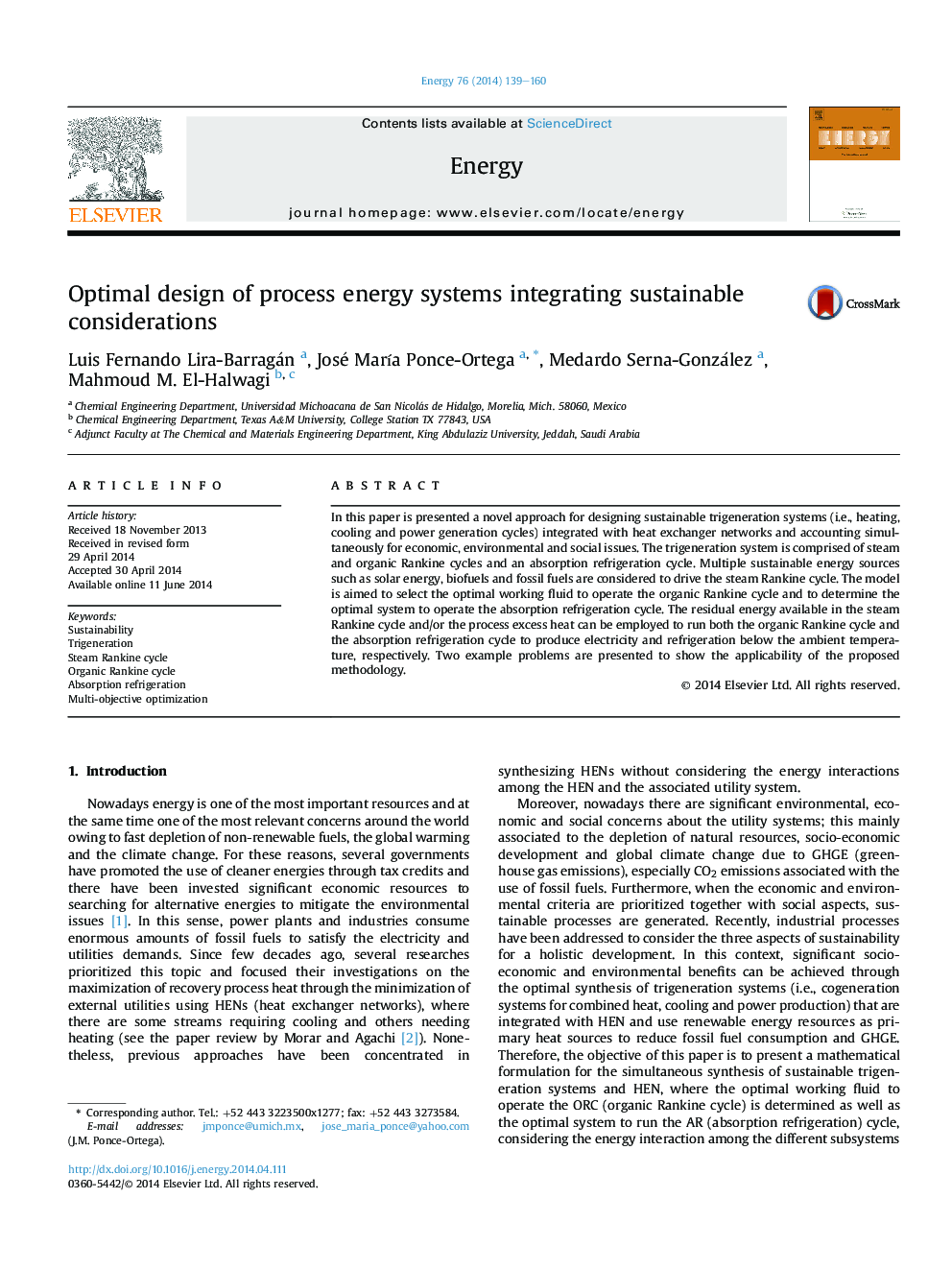| Article ID | Journal | Published Year | Pages | File Type |
|---|---|---|---|---|
| 8076543 | Energy | 2014 | 22 Pages |
Abstract
In this paper is presented a novel approach for designing sustainable trigeneration systems (i.e., heating, cooling and power generation cycles) integrated with heat exchanger networks and accounting simultaneously for economic, environmental and social issues. The trigeneration system is comprised of steam and organic Rankine cycles and an absorption refrigeration cycle. Multiple sustainable energy sources such as solar energy, biofuels and fossil fuels are considered to drive the steam Rankine cycle. The model is aimed to select the optimal working fluid to operate the organic Rankine cycle and to determine the optimal system to operate the absorption refrigeration cycle. The residual energy available in the steam Rankine cycle and/or the process excess heat can be employed to run both the organic Rankine cycle and the absorption refrigeration cycle to produce electricity and refrigeration below the ambient temperature, respectively. Two example problems are presented to show the applicability of the proposed methodology.
Keywords
Related Topics
Physical Sciences and Engineering
Energy
Energy (General)
Authors
Luis Fernando Lira-Barragán, José MarÃa Ponce-Ortega, Medardo Serna-González, Mahmoud M. El-Halwagi,
